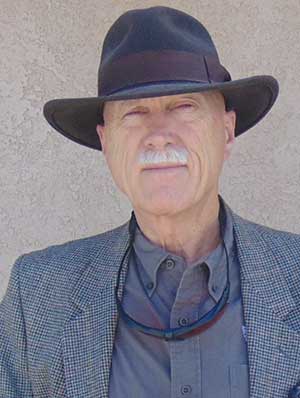
Australia -(Ammoland.com)- Those who pushed for the severe restrictions on guns in Australian society can no longer claim the one success they had touted as a result of their expensive, intrusive, experiment.
They claimed there had not been any mass murder with firearms since the law was passed.
The latest mass public shooting/murder occurred in Darwin, Australia. From the west.com:
Four people are confirmed dead and police are investigating five crime scenes after a mass shooting in Darwin tonight.
Northern Territory Police said four men are confirmed dead and one woman has also been taken to the Royal Darwin Hospital with gunshot wounds, in a stable condition, a Northern Territory Health spokeswoman said.
NT commissioner Reece Kershaw said this evening that the alleged offender, who has since been arrested, was on parole at the time.
The murders happened over much of Darwin over several locations. I had traveled near those locations only two weeks ago. I recall driving by the Buff Club. From 7news.com.au:
The five crime scene locations were The Buffalo Club, Gardens Hill Crescent, the Palms Hotel, at a Coles Express and at the Peter McCauley Centre, NT Police Commissioner Reece Kershaw confirmed.
Those who push for a disarmed society, used to claim, although suicides had not declined, and the gun restrictions had not affected the homicide rates, at least there had been no mass public shootings since PM John Howard pushed the extreme law through, in an emotional media blizzard, in 1997.
This recent mass murder by shooting is the third since the 1997 law was passed.
Much of this is moot, if you examine the facts with intellectual honesty. Mass murder with guns by deranged individuals is a minuscule portion of the total number of murders.
Moreover, there are many other ways to commit mass murder. Focusing on guns is a way for people who do not want an armed population to create a simplistic reason to restrict guns from law abiding people.
No guns, no murders with guns. This is a straw man fallacy.
The point is not to reduce the murder rate with guns. The objective is to reduce the murder rate. The correct, purely pragmatic question would be: was the total murder rate reduced?
If the murders with guns were reduced, but the total murder rate was unchanged or increased, what is the point of expending so many resources on restricting guns?
By limiting the discussion to murders or suicides with guns, those who have an emotional aversion to guns create a false narrative. Many of the pragmatic arguments about the value of guns in society are about potential substitution effects. Those who emotionally hate guns try to eliminate those arguments by defining them out of existence.
The usual sequence of events, when a gun control policy fails, is for the proponents of the policy to claim it did not go far enough, it was not restrictive enough, or it was not enforced in a sufficiently draconian manner.
This has been evident in Brazil, where the proponents of a disarmed Brazil claimed the high murder rate was because their extreme gun laws had not been enforce sufficiently. From the far left, disarmament proponent Robert Muggah:
On paper at least, Brazil has comprehensive gun legislation. In 2003, the country passed a disarmament statute that, among other things, introduced a set of common-sense restrictions for gun ownership. For example, it permitted ownership but set a minimum age for gun possession at 25 and included mandatory background checks and requirements to renew licenses every five years. The statute suffered a major setback, however: It was never fully enforced.
When President Bolsonaro loosened restrictions on the administration of the law, the homicide rate immediately fell.
It is an article of faith of those who promote citizen disarmament, that fewer guns results in fewer deaths.
It is not true. Guns can be used for protection as well as destruction. It is the values in society that determine murder rates, and how much the society accepts the rule of law.
Australia has had an extremely law-abiding culture for over 100 years.
That made it vulnerable to people pushing for a disarmed society. If there is little reason for self defense, in the short term, people who do not own guns see little reason not to severely restrict them.
In the United States, the Second Amendment provides a rallying point to protect the right to keep and bear arms for self-defense.
In Australia, the people who live in the rural areas did not want the extreme gun laws. They were outvoted by the city people who knew nothing about guns, and the media, who were and are completely one-sided in the gun law debate.
It is likely the media in Australia will call for even more extreme gun control laws. Laws that would not have effected the last mass murder (he was ineligible for a gun license).
It is the usual pattern.
About Dean Weingarten:
Dean Weingarten has been a peace officer, a military officer, was on the University of Wisconsin Pistol Team for four years, and was first certified to teach firearms safety in 1973. He taught the Arizona concealed carry course for fifteen years until the goal of constitutional carry was attained. He has degrees in meteorology and mining engineering, and recently retired from the Department of Defense after a 30 year career in Army Research, Development, Testing, and Evaluation.
